Every business owner wants to know how to create raving fans.
Well, at the tender age of 22 years old, Joshua Nicholls graduated college and decided it was about time he started his own business. Soon enough Platinum Electricians was born and he went from operating in his parent’s spare room to growing his business by 1200% in just five years. After seven years, he franchised the business and it now turns over $20 million annually. And that’s with only $100,000 annual expenditure on advertising. Not bad, huh?
How did he do it? Simply by placing focus and attention on every element of the customer experience in order to create raving fans – from not stepping on the customer’s lawn on the way into the house through to rewarding customers for making referrals. It’s so simple, and every business owner should be doing it!
This week’s episode offers some great insights in how to ensure your business sells an experience that keeps customers coming back for more, time and time again. So what are you waiting for? Hit PLAY for some serious marketing G O L D .
In this session of Small Business Big Marketing, you’ll discover:
- How Josh Nicholls started a successful business at the tender age of 22.
- The importance of leaning on business mentors for guidance.
- How Josh grew his business by 1200% in just five years.
- The importance of achieveing a work/life balance.
- Why receiving loyalty from customers is the cornerstone of business success.
- Why it won’t hurt your business to do something for free and give back.
- How Josh runs a business with $20 million annual turnover and invests only $100,000 in advertising each year.
- Why great marketing really doesn’t have to be complicated at all.
- Why delivering a great customer experience is always going to be at the centre of business success.
- If your business will suffer from having a long name.
Episode Timeline
- 3.45 I get to some listener feedback from Jason Milne, a business owner you can find over at paddleguy.com
- 5.45 Design is an important part of any business and you can get yours sorted over at 99designs.com.
- 17.00 From building a website, through to providing you with an Adwords campaign that converts, Netregistry is the place to go to get your digital footprint sorted.
- 18.00 I get chatting with Josh Nicholls, founder of Platinum Electricians.
- 21.00 Trade skills versus business skills.
- 23.00 Josh talks mentors and why he sought them out in the early days of business.
- 27.00 When Josh almost hit breaking point and had to do something to fix his work/life balance.
- 29.00 Leveraging out of your business in order to grow your business.
- 31.45 Josh’s reason for doing it all – giving back.
- 32.30 Why Josh decided to franchise the business seven years along the line.
- 38.00 Platinum Electricians today – $20 million annual turnover, 200 employees, and 101 vans.
- 39.00 Focusing in on core values to build a business.
- 46.00 Josh’s 21 step process that gets taught to every person in his company – ensuring excellence for every customer.
- 56.00 Josh shares his maketing budget.
- 63.00 My top SEVEN learnings from chatting with Josh.
- 67.00 Quote of the week.
Resources and Links Mentioned in this Episode
- Platinum Electricians official website
- Netregistry answers your marketing questions for free
- www.99Designs.com.au/sbbm – For logo design, brochure design, and more. Grab your exclusive listener upgrade at this link.
- The Small Business Big Marketing online community
- Transcription Services provided by GMR Transcription
Tweetables
Enjoy this episode? Let us know on Facebook or Twitter!
Click here to visit our Facebook page and leave a comment about the show.
Click here to tell us on Twitter what you thought of the show.
Subscribe to the Small Business Big Marketing podcast
Click here to subscribe to Small Business Big Marketing in iTunes
Join the Small Business Big Marketing online community
We’re building something big over at the Small Business Big Marketing online community forum. Drop by and say hi – soak up some marketing gold!
Over to you!
Let us know YOUR key takeaways from this episode by leaving a comment below. I personally read and respond to every comment!






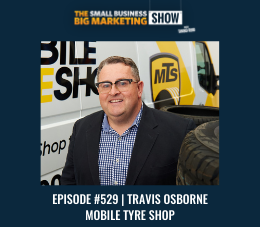
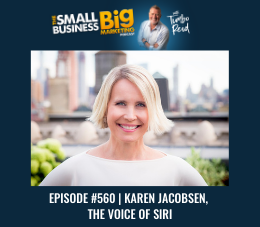

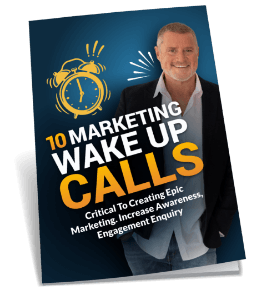
 Grab My 10 Marketing
Grab My 10 Marketing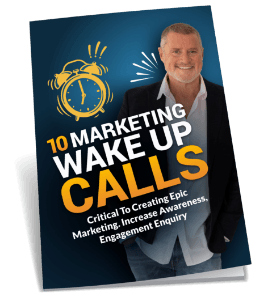
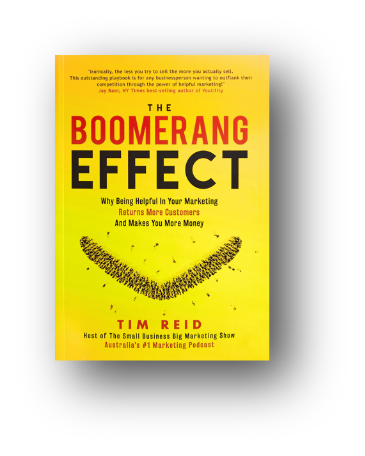
16 thoughts on “205 – How to create raving fans with Joshua Nicholls from Platinum Electricians”
Well done. Out of the park. Yes, I was wetting myself as you thought.
Josh, I need one of those mentors you spoke about. Sign me up! Great chat, and since I too am a “tradie”. This hits very close to home. I will give you a few of my 1%ers, but for the whole list! you need to get into the forum…the rest will be there!
1) My office sends out a confirmation email after each apt is set.
2) Free color design (I own a paint contracting business) with large life size color boards 18″ x 18″
3) project review meeting with me, my production manager and the homeowner to go over all the little detail.
4) lifetime warranty on everything we do.
There are about 7 more, and I am going to add to them from what Josh had. GOLD!
Josh, I have to disagree with one thing you said. Advertising CAN grow a business. I have seem many businesses over the years that give bad service that continue to grow because of clever advertising. It is not the best way, nor is it cost effective, but it can be done. Love your model, and I have room for improvement. Thanks for sharing!
http://Www.wallsbydesign.com
Thanks Nick. I knew you’d particularly love this episode. I think you should go ahead (if you haven’t already) and create the Walls By Design list of one-percenters to build a tribe of raving fans. A list that every one of your artists out in the field must follow. I’d love to see it as I’m sure many would. Whack it in the Forum ;0)
Oh I’ve started.
Timbo, great podcast.
As a Virtual CFO, one of the Top 3 problems I help small businesses with is cashflow. Josh’s recollection on when things got hairy at the 4-5 year mark is a classic example of a business with a lack of control and accountability in financial management and cashflow.
I’m sure a lot of small business owners out there know the feeling when things are rosy on the outside with a growing business however on the inside you can be drowning in financial debt and paperwork.
It’s sometimes the simple things that can go to the wayside in our busy lives but Josh’s friendly reminder of simple customer service tips can make all the difference to a happy customer!
Brad I hired a virtual CFO this year, and it was one of the smartest things I’ve done. You are someone EVERY small business owner needs on their team!
Yep. Nailed it with that one Timbo. That episode was particularly relevant because I’m also a tradie but gold laden for any small business in my opinion. Thanks for sharing Josh.
1%er: make a small fuss about whether you should take your boots off before entering someone’s house.
Say g’day to Nick and everyone in the forum for me.back soon. Regards Adam.
LOVE LOVE LOVE this podcast. I provide locally based virtual admin support and marketing teams for Tradies so I was wetting my pants with excitement. It was so refreshing to hear someone that understands the fundamentals of running a trade business and the 1%ers. This is a exactly how a trade business should be run. It gave me goosebumps and I will be sending it to my tradie database this week as a MUST LISTEN.
Whoa! Where to begin!?!
Firstly, great work Timbo, getting Josh on the show, a real coup and someone who (for me) represents what your show (and business) is all about… so, well done, and thanks.
Josh, you have done an amazing job (although you don’t need me to tell you that!) – but moreover, you’ve done it with an amazing attitude and compelling reason, something that not every (or even many) small business owner manages to do.
You make, what I know must have been challenging to begin with, sound simple. I’m sure, like most things in life, simple does not necessarily equate to easy, but like anything that’s worth pursuing, certainly presenting a great return on your investment,
I love the 21 points idea, a list of 1%’s that distances your business from the masses; again, sounds simple to do, but I’m sure a list that you pored many hours over, making sure you got it right.
I admire your ethics, giving back, sponsoring those less fortunate than ourselves, very commendable, and without going all woo-woo, you’ll undoubtedly get back 10x what you put out there – you’re a great example to us all.
I have no doubt that your cycle business idea will only succeed; with your desire, intellect, and attitude, there’s only one outcome as far as I can see.
Can you imagine if every company we used in our lives was doing things the ‘Platinum’ way? Our plumber, our carpet cleaner, our dentist, our car garage etc etc… What a world we’d live in… A world of 1%’s
I need to go write up my list of 1%’s…
Really great show guys, thanks again!
P.S. This is will be defo a ‘3 timer’ podcast… Going to listen for the 2nd time now!
P.P.S. Great idea by Nick for the audio testimonial, and effective too… I’m heading over to the forum to check it out.
P.P.P.S. Well done Timbo on putting yourself up for the 2-day stand-up gig – I’m sure you’ll breeze it, but still takes guts to get up there, so we’ll done mate! (You should post a link to your gig!)
Great interview Timbo
The take away for me was Josh’s worldview is the reason for his business,
1:the key points were early on his interaction with Gloria Jeans co founder Peter Irvine who’s business practices reflect his worldview.
2: his mission 1 van 1 child, it’s what I call “PROFIT WITH PURPOSE”.
3: finance, he stated he didn’t respect debt, well money has become his servant and not his master, his vision with child sponsorship could never be fulfilled if this didn’t occur.
4: Josh respects his time and has freed himself to pursue his passion in going to Zambia next February that’s a key passion point at the centre of his story
5: his 21 steps to amazing clients is simply an overflow of everything else he values, Timbo there’s a fair bit of woo woo in this but it’s a great message.
Really great podcast! Am currently working on our service standards so the timing was perfect!
I’ve had my eye on Josh and platinum electrcians for about 3 years now. I think he has done great with his business. and as an electrician myself look to build something a 1 percent as good.
Just wanted to know other people’s customer service 1 perecenters that they do?
and
How can we reward customers better? i like movie ticket idea, but what else?
Thanks for all the kind words everyone, I think what Tim and yourselves have here is a great network in helping each other achieve your dreams & kudos for that 🙂
My favourite episode I think. I had a great feeling after listening to this & I had heaps of content. I loved the polite reminder to remember to do the right thing & put more thought into your daily work actions. Love that he was a giver but didn’t go on about it at all.
You can’t not try them out now. Thanks for the great interview and for a few of the 21 steps 🙂
What a great episode. So much gold. This is definitely one that I will be sharing with my staff next week – particularly the points about customer experience and loyalty. Keep up the great work, Timbo!
Great work Timbo.
Great Episode.
The 1% that has always stuck with me has been your experience you talk about in Vietnam.
Timbo, holy cow – what a great episode. So much to take out of this episode. 1%ers and customer service, simple stuff, but stuff that you tend to forget. Gift vouchers going out to all new clients from here on in. But more importantly, I will be setting out to create great customer service. To take a line from Josh – will try to become the worlds greatest customer focused accounting business